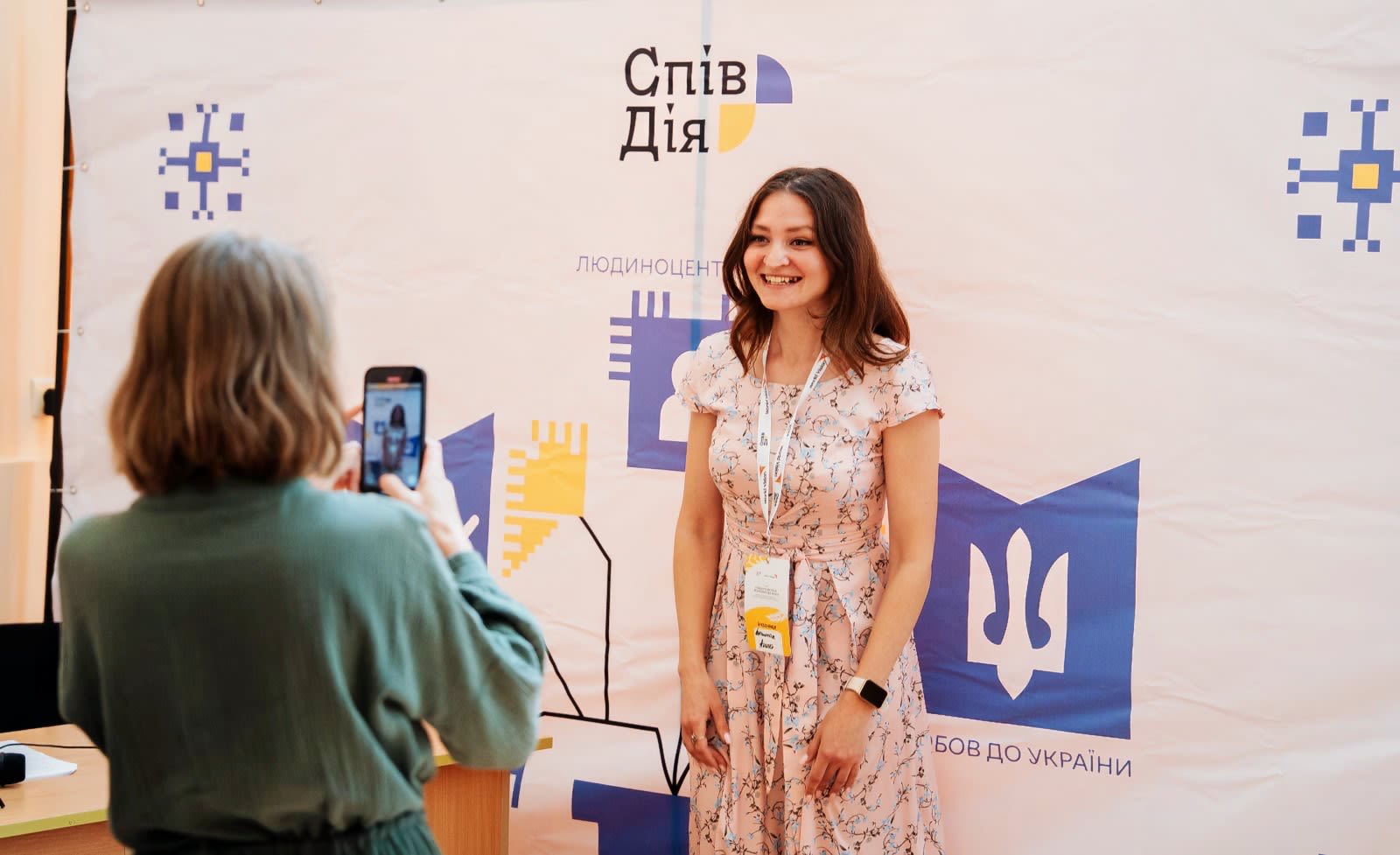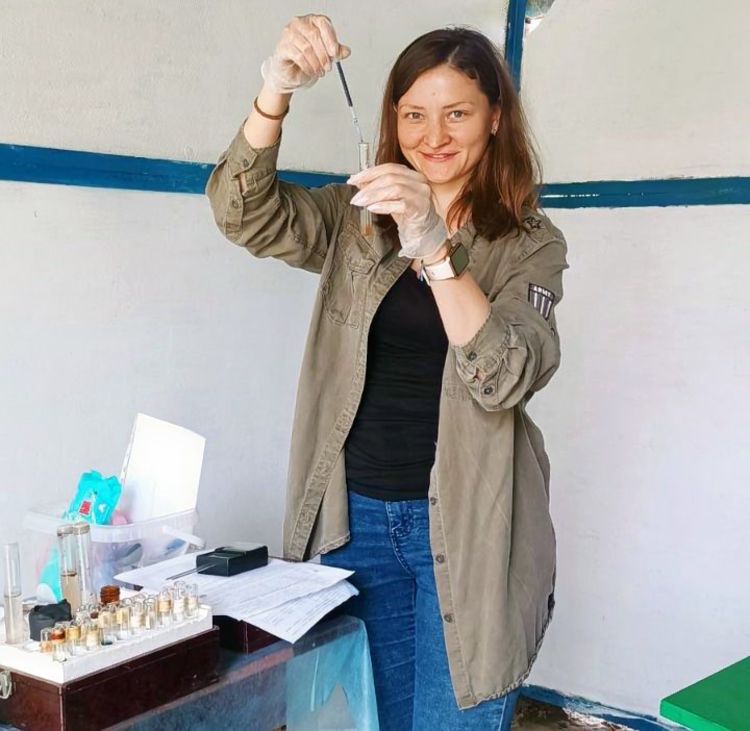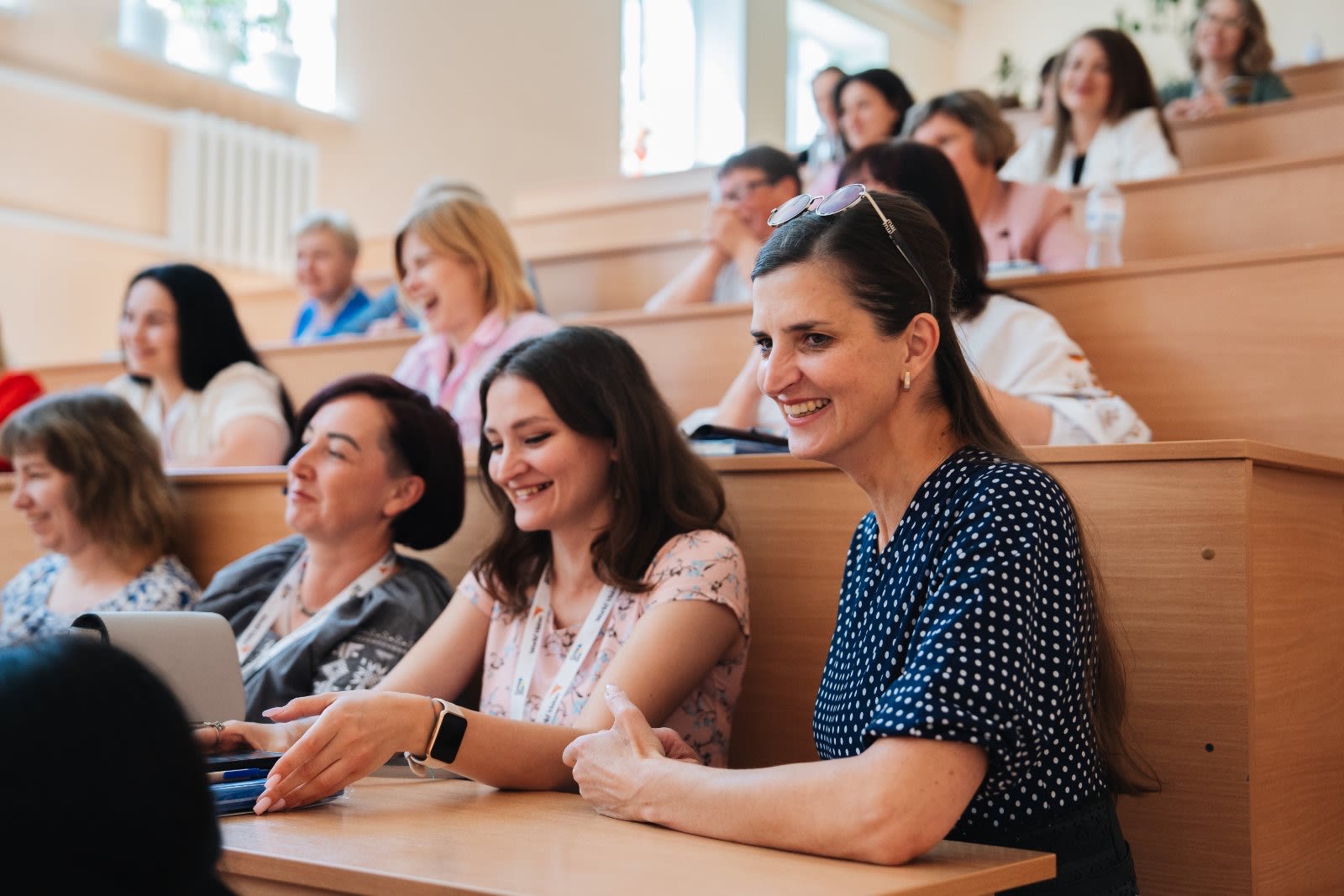Women Farmers Rebuilding Ukraine: Anna’s Mission to Empower Veterans Through Her Agricultural Startup

“My mission is to support veterans and create jobs for them. I want to provide veterans with a space where they can work, grow, and thrive, turning their strength and resilience into opportunities.”
Anna is among the first participants in an initiative launched by World Vision Ukraine Crisis Response (UCR), in partnership with local NGO SpivDiia and with critical support from Taiwan’s International Cooperation and Development Fund (TaiwanICDF).
The project,“Women’s Empowerment, Agri-Business, Vocational Training, and Economic Growth,” is designed to build long-term economic resilience among Ukrainian women, particularly those displaced by war.
The motivation behind Anna’s participation is deeply personal.
“I’ve experienced great loss. My eldest brother died in the war. My middle brother is still on the frontlines. He is an agronomist, and he finds it heartbreaking to see the destruction of our fields and land, resources that once sustained our communities.”
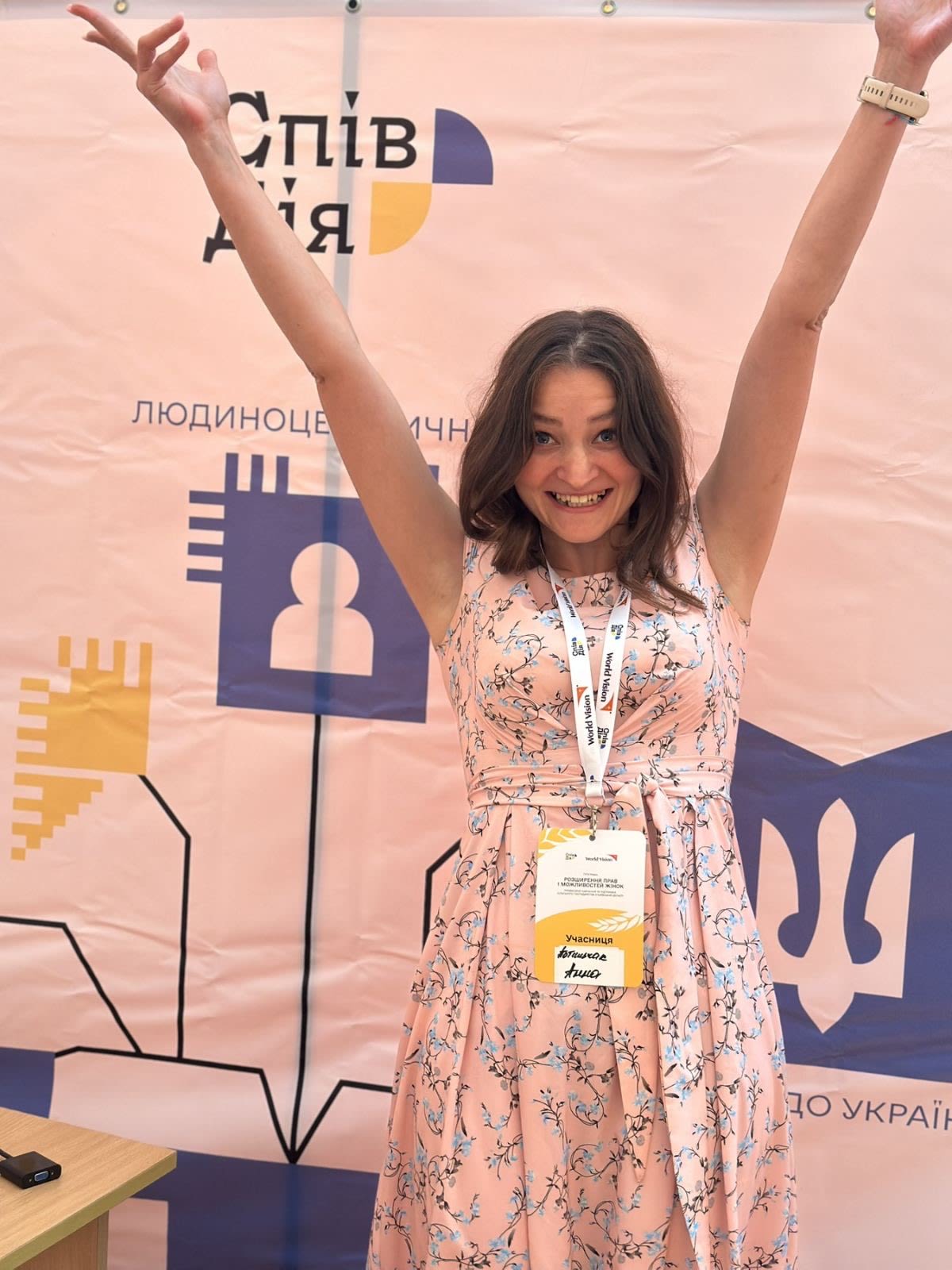
The face-to-face practical sessions were truly valuable and exciting, engaging lessons, lively discussions, and hands-on activities like experimenting with chemical compounds and performing economic calculations. (Photo from Anna's personal archive)
The face-to-face practical sessions were truly valuable and exciting, engaging lessons, lively discussions, and hands-on activities like experimenting with chemical compounds and performing economic calculations. (Photo from Anna's personal archive)
In a country where war has devastated large swaths of agricultural land and forced millions from their homes, this project is a timely response to a growing need: practical, locally grounded economic recovery for women in Kyiv oblast, including internally displaced. It delivers targeted vocational education and training (VET) through a partnership with the Boyarsky Vocational College of Ukraine’s National University of Life and Environmental Sciences, blending technical knowledge with business management.
Over two months, participants engaged in online theoretical lessons – covering everything from crop biology and soil chemistry to market strategies – followed by face-to-face practical sessions.
“The lessons were engaging and lively, with productive discussions. The mix of ages in the group motivated me even more. I especially liked the practical classes, like experimenting with chemical compounds, and doing economic calculations, even though math isn’t my strong suit”.
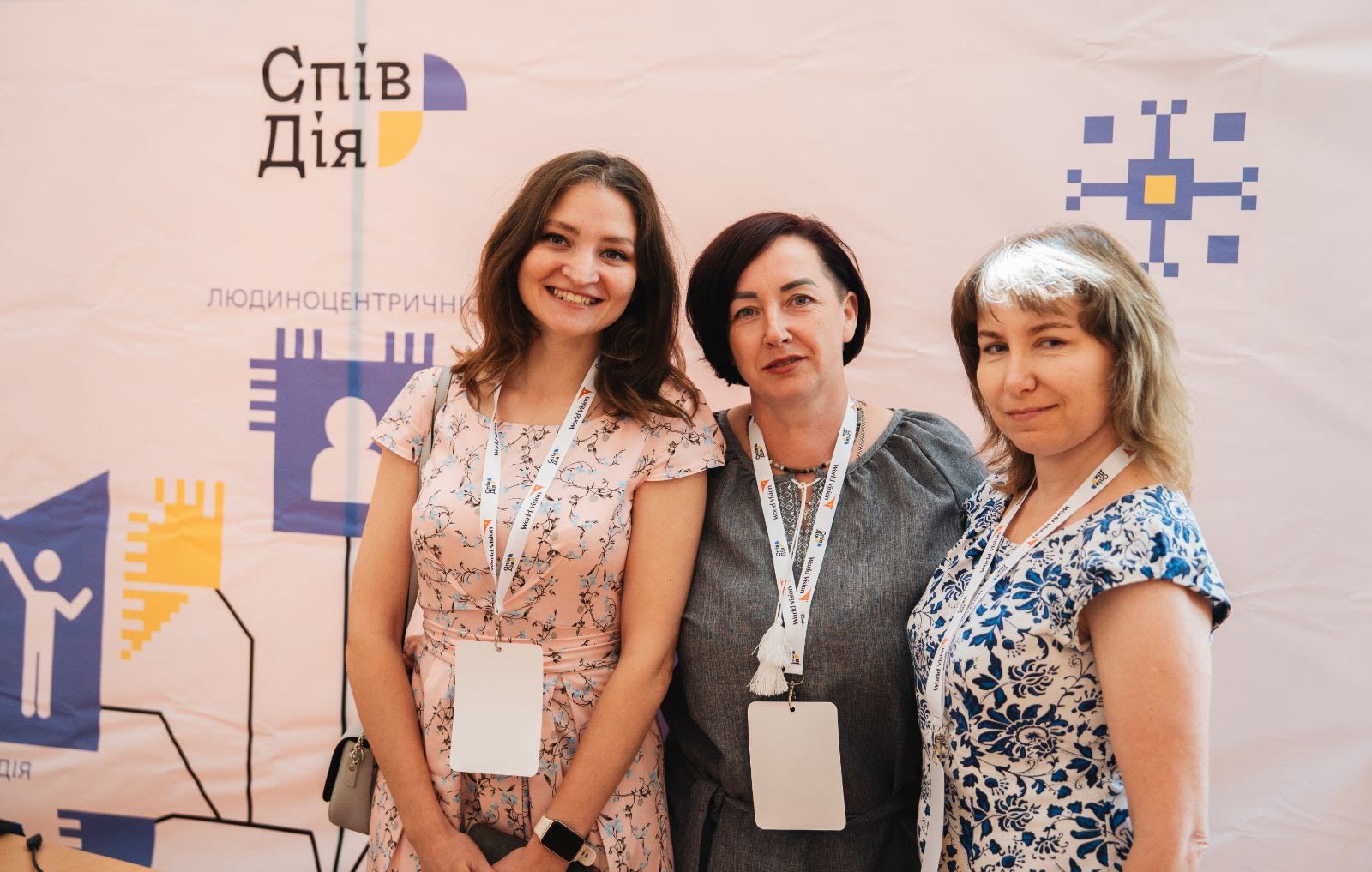
One-third of the course literature is authored by the scientists of Ukraine’s National University of Life and Environmental Sciences, drawing on the country’s academic strengths to provide relevant, locally applicable knowledge.
To remove barriers to participation, the program offers conditional cash support: a $200 USD monthly stipend that ensures women can commit to the training without added financial strain.
At the end of the course, participants pitch their business plans to a review committee. During a recent donor visit from TaiwanICDF, women had the opportunity to present their ideas directly to the funders.
As Julie Wu, Division Chief at TaiwanICDF, shared:
“During my visit, I was genuinely touched by the warmth and enthusiasm of the people I met. Seeing the progress made through this project leaves me optimistic about its potential to support the well-being and economic growth of communities in Ukraine.”
Successful proposals will receive grants ranging from $1,000 to $2,000 USD to develop their microbusinesses in agriculture and vegetable farming – further fueling local economic revival.
As Yelyzaveta Mordan, World Vision’s Technical Advisor on Livelihoods, explains, “It was challenging to encourage women to participate, as many felt uncertain and reluctant. However, with access to innovative technologies and opportunities, women can now succeed more easily – provided they have the right knowledge and practical experience. This work also offers the potential for higher salaries and better economic prospects”.
The timing couldn’t be more urgent. Nearly 39% of agricultural enterprises in Ukraine report difficulties hiring skilled workers. Youth migration, military mobilization, and disrupted education have drained the sector’s workforce.
Meanwhile, ongoing conflict continues to damage vital infrastructure and farmland. Environmental challenges, such as the destruction of the Kakhovka Dam, have further intensified the situation, leading to water shortages, ecological disruptions, and erratic weather patterns that threaten future harvests.
Anna, with her fellow participants and one of the lecturers, during their business plan defence at the auditorium of Boyarsky Vocational College, which shows their dedication to learning about entrepreneurship and their readiness to use their new skills. (Photo from Anna's personal archive)
Anna, with her fellow participants and one of the lecturers, during their business plan defence at the auditorium of Boyarsky Vocational College, which shows their dedication to learning about entrepreneurship and their readiness to use their new skills. (Photo from Anna's personal archive)
A moment captured after the graduation ceremony, with all participants, lecturers, TaiwanICDF representatives, the World Vision operation team, and our partner “SpivDiia” - all inspired by new ideas and motivated to reach even greater heights.
A moment captured after the graduation ceremony, with all participants, lecturers, TaiwanICDF representatives, the World Vision operation team, and our partner “SpivDiia” - all inspired by new ideas and motivated to reach even greater heights.
TaiwanICDF delegation visiting the project participants' fields in Kyiv region, Ukraine
TaiwanICDF delegation visiting the project participants' fields in Kyiv region, Ukraine
For Anna, the project is more than training, it’s a turning point. “This programme came at the right time,” she says. “With so many men at the front, women need to step forward. Before, I didn’t see myself in agribusiness. I didn’t believe I had the skills. Now, I do. I have a clear plan and the confidence to grow my business and support my community.”
Anna’s project aims to grow microgreens and edible flowers using eco-friendly methods, with the primary goal of creating stable employment for veterans in Ukraine. By providing meaningful work, it supports veterans’ reintegration and well-being. While the microgreens market declined during the war, it is now recovering, and this initiative promotes sustainable development and social inclusion, benefiting both the environment and those who served.
To date, the project has directly benefited 61 women with livelihood support. Overall, World Vision Ukraine Crisis Response has reached over 30,000 people with vital early recovery and economic development opportunities.
But to meet the scale of need, continued support is essential. Ukraine’s agricultural future, and the self-reliance of women like Anna, depends on sustained investment. With the right backing, these women are not only rebuilding their lives, but they are also helping rebuild Ukraine.
